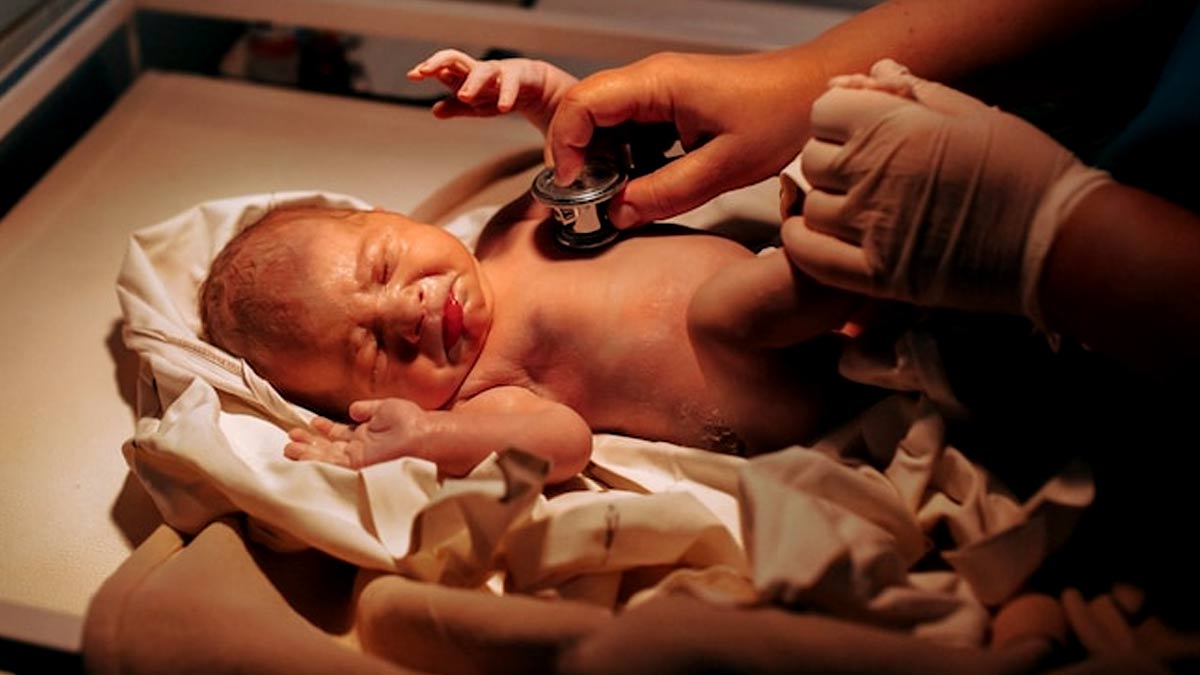
A regular pregnancy ideally lasts for 40 weeks. However, just like a menstrual cycle, the gestation period can have fluctuations as well, meaning that some babies can be born before or after 40 weeks of pregnancy. However, it's normal if these fluctuations are close to 40 weeks, but if a baby is born before 37 weeks of pregnancy, then it is known as a premature birth. This has been confirmed by the Centres Of Disease Control And Prevention, which stated that experts don't really know all the reasons that cause this.
Table of Content:-
The World Health Organisation in a recent study put the maximum onus on poor maternal health and malnutrition, stating that an estimated 13.4 million babies were born early in 2020. This means almost one in ten live births are premature globally.
Global Rate Of Premature Births

According to a study published in the Lancet, and conducted by researchers from the WHO, the United Nations Children’s Fund (UNICEF), and the London School of Hygiene and Tropical Medicine, prematurity is the leading cause of death in children’s early years. What's concerning is that despite the advancements, awareness, and increased access to modern medicine, this rate has maintained since 2010. In the last decade, the rate of premature birth has seen a meagre 0.14% reduction.
Dr Anshu Banerjee, Director of Maternal, Newborn, Child and Adolescent Health and Ageing, WHO commented, “Preterm babies are especially vulnerable to life-threatening health complications and they need special care and attention."
Also Read: Preterm babies are at high risk of mental illnesses
"These numbers show an urgent need for serious investment in services available to support them and their families as well as a greater focus on prevention – in particular, ensuring access to quality health care before and during every pregnancy," he added.
Preterm Birth Causes

It was more concerning to find, as revealed by the researchers, that this issue of preterm births was not limited to low and middle-income countries. Even high-income countries like Greece and the United States of America have 11.6% and 10% preterm birth rates respectively.
As per the study, between 2010 and 2020, approximately 15% of all preterm births occurred before 32 weeks of gestation, requiring more neonatal care. This includes babies born at less than 28 weeks (4.2% of preterm births) and those born between 28-32 weeks (10.4% of preterm births).
Also Read: Air Pollution Linked To 6M Preterm Births A Year, Study Finds
The study ascertained the blame on maternal health risks, adolescent pregnancy, infections, poor nutrition, and pre-eclampsia, a condition characterised by high blood pressure during pregnancy.
In summary, the global preterm birth rate hasn't significantly changed in the last decade. There are data gaps which have a high burden of preterm births. To address this issue, the researchers recommended that countries should invest in preventing preterm births and ensuring quality care when they occur. A special focus needs to be laid on maternal health, nutrition, and quality antenatal care through early ultrasound scans and approved treatments to delay premature labour. Improving data quality is also crucial for better understanding and addressing this problem.
Also watch this video
How we keep this article up to date:
We work with experts and keep a close eye on the latest in health and wellness. Whenever there is a new research or helpful information, we update our articles with accurate and useful advice.
Current Version